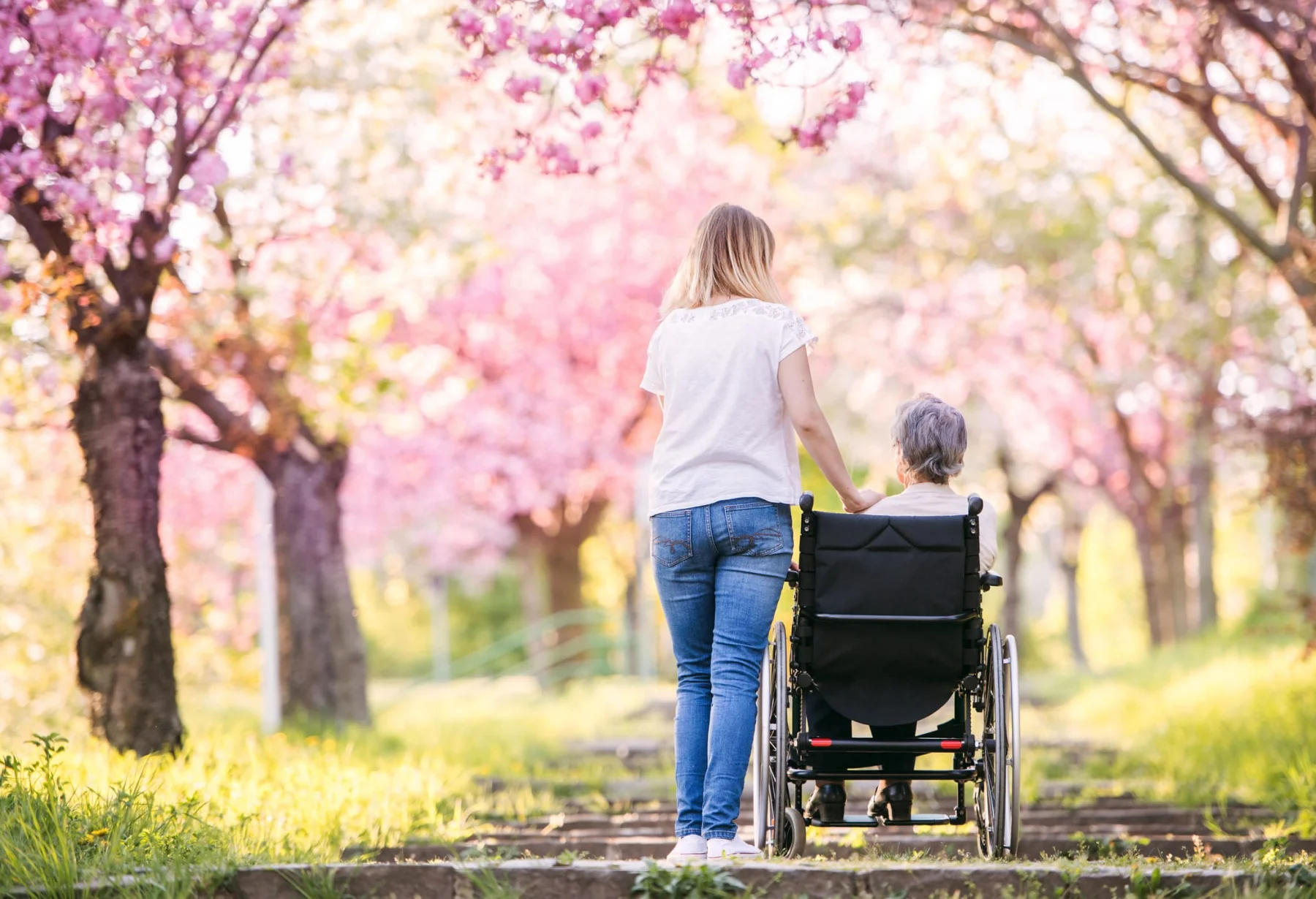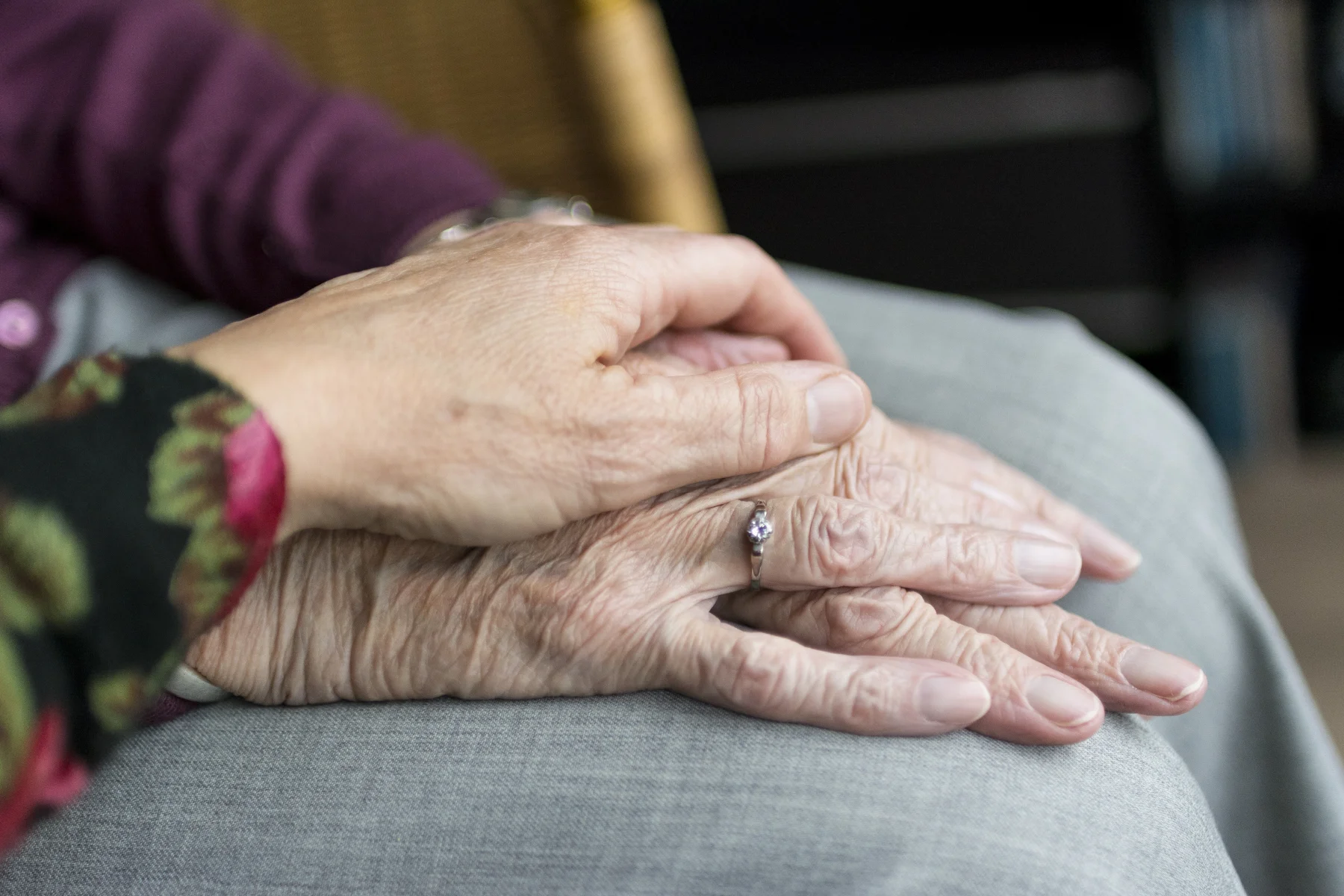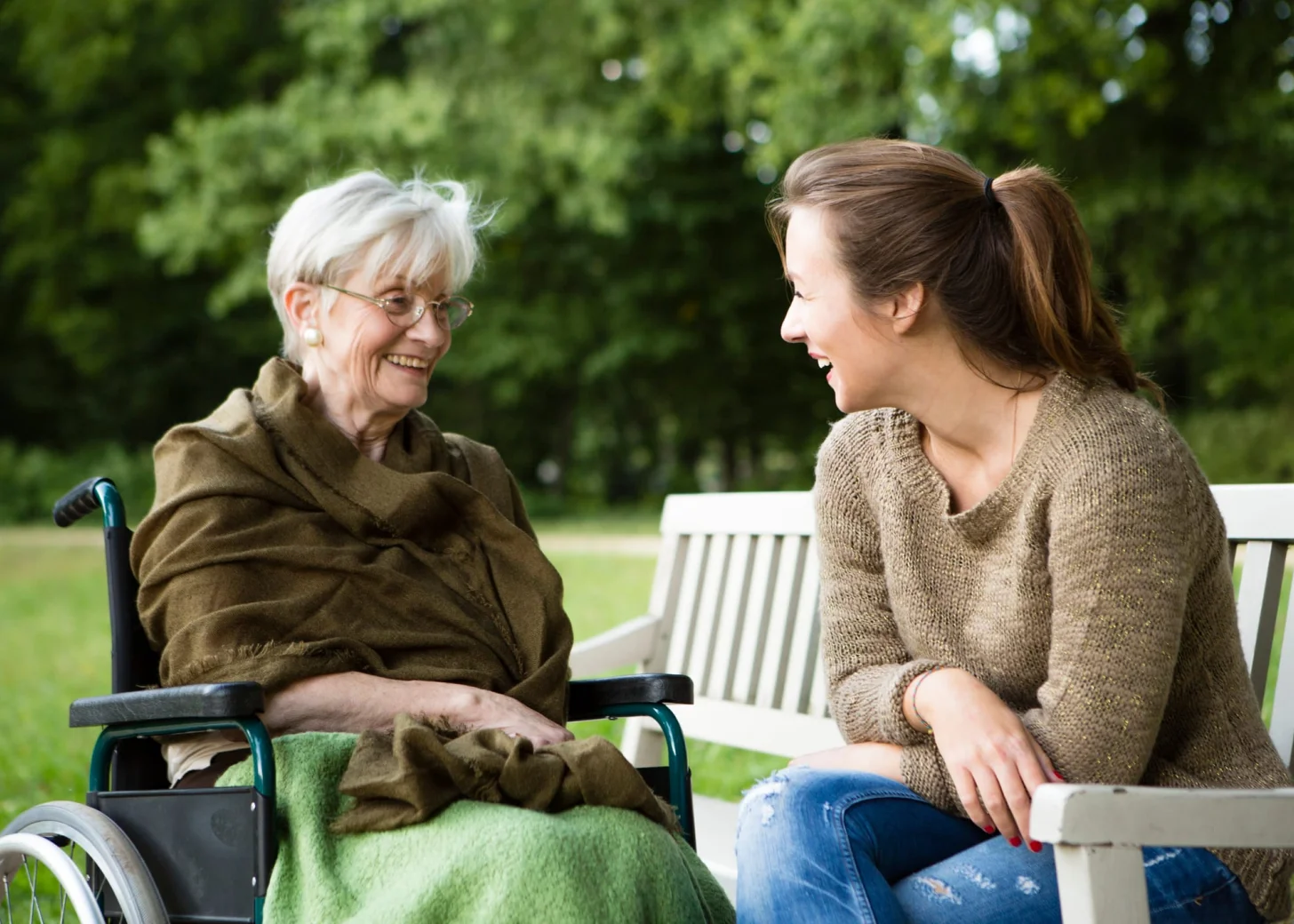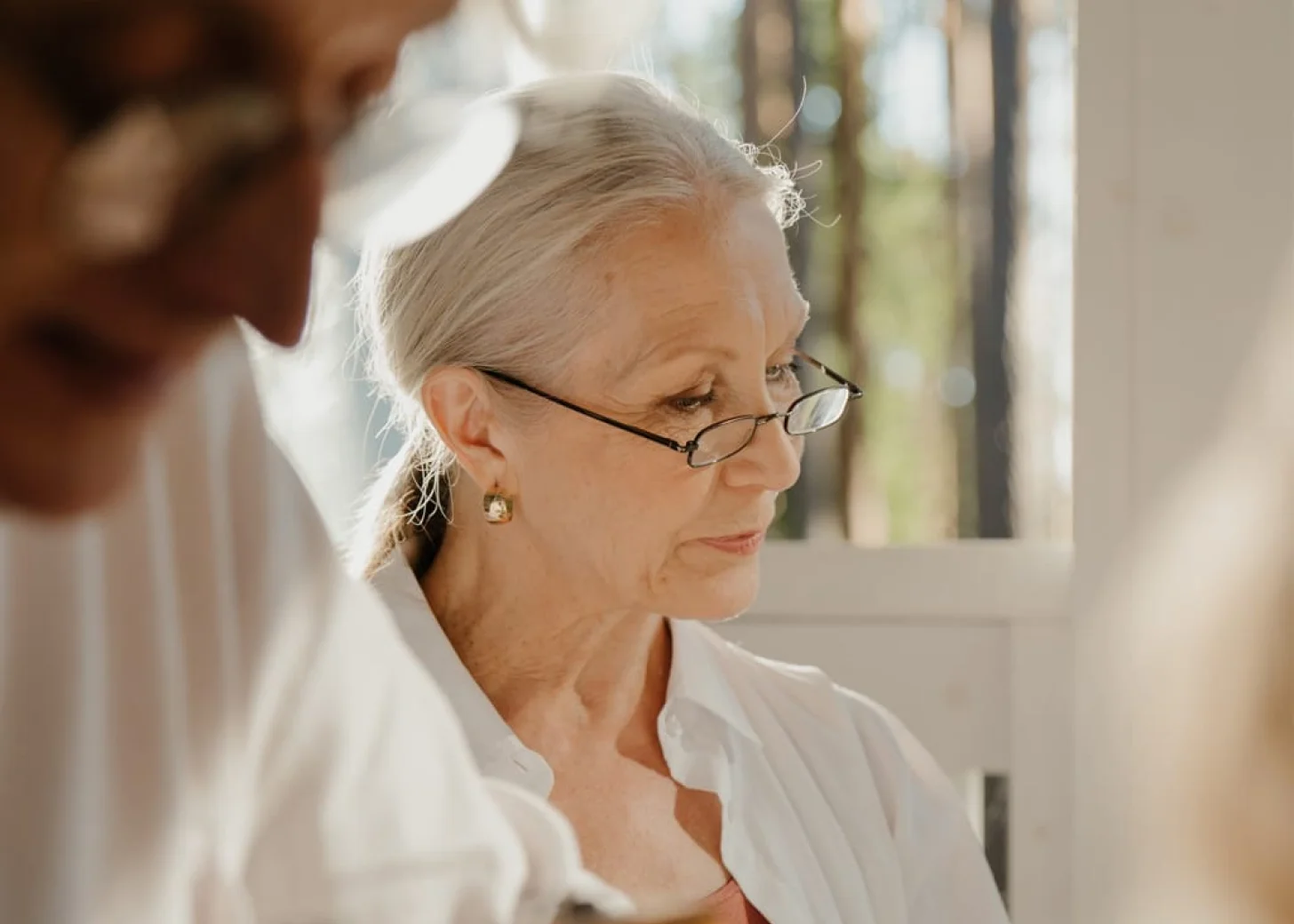It can be very hard to see someone you love and have cared for, dying and can be difficult to know what to do. Here we look at what palliative care and end-of-life care consists of, thanks to the insights and expertise of our clinical nurse Caroline.

What are the differences between palliative care and end of life care?
Palliative care is an approach, rather than a type of treatment. It is a combination of care offered when you first learn that you have a life limiting or terminal illness. The aim of palliative care is to provide specialised medical care that focuses on providing relief from pain and other symptoms, helping everyone to make important decisions about health and treatment. Palliative care supports people to live as fully and comfortably as possible, to the end of their life.
It treats the whole person and their family, not just the disease, condition, or body part.
End of life care refers to the care and support for individuals who are thought to be in the last year of life. Here, the aim is to help people live as comfortably as possible in the time they have left. It involves not only managing physical symptoms but also giving emotional support and spiritual care to the person and their family and friends. Importantly, end of life care not only provides support for the patient but also extends compassionate assistance and guidance to their families and loved ones during this difficult time.
Palliative and end of life care – an interview with Caroline, Draycott’s Nurse Liaison
Caroline has been Draycott’s Nurse Liaison for over four years. Having first trained as a registered nurse in New Zealand, she has over 40 years of experience in clinical care. Caroline’s passion and expertise are in palliative and end of life care, having worked as a specialist at Trinity Hospice for over 20 years.
Can you share a bit about your background and what led you to specialise in palliative care?
“When I first qualified, I worked in paediatric oncology, and I’ve always had a passion for cancer care. When I moved to England, I worked in various healthcare settings but was consistently drawn to palliative care. People often don’t understand why I’ve dedicated so much of my career to supporting end-of-life care or why I would want to specialise in this area. For me, it is a true privilege to be with someone at the end of their life. It is such an important and supportive role. You know that you are really helping someone, making the end of their lives as comfortable as possible, and importantly, allowing people to die with dignity. Also, working in this situation allows you to truly get to know patients and their families. The understanding gained from this experience, and our ability to offer real comfort and support in such a challenging time, is incredibly rewarding.
A good death also involves providing support for those around those nearing the end of their life. It’s about caring for the family, assisting with bereavement, and helping them through the process. We receive such gratitude from families, and the fulfilment we gain from such a significant role is beyond words.”
For me, it is a true privilege to be with someone at the end of their life.
What are some of the biggest challenges you face in your role?
“It is always challenging when death is unexpected or when families have difficulty accepting it. When there’s nothing more we can do medically, it can be very hard. However, we can offer bereavement support and assist with household tasks, helping families navigate their grief.”
At Draycott, how do we liaise and work with other healthcare providers and professionals during end of life care?
“When a client of ours is dying at home, we are in constant communication with external palliative care teams, GPs and district nurses. This contact allows us to have a holistic approach to care. We can therefore reassure clients and families through keeping them updated and making sure clients receive the best support from all care providers. As a nurse-led agency, we are also able to refer clients to palliative care teams and hospice care ourselves. This means that when current clients of ours are deteriorating, and no one has referred them to the relevant social services, we as a nursing team can make referrals to district nurses and palliative care if this has not been done.”
This consistent contact allows us to have a holistic approach to care.

How do you support patients and their families emotionally and spiritually during end of life care?
“We always make sure to keep in contact with the families of those who are dying, as well as all those involved in the journey. In our training on end of life care for our carers and nurses, we always discuss the importance of emotional and spiritual support. We provide information and educational services on how different religions deal with death, to make sure that everyone’s beliefs are respected in such an important time.”
What advice do you have for family members who are struggling to cope with a loved one’s terminal illness?
“If you are struggling to cope with a loved one’s terminal illness, Draycott is here to help. We would encourage families to support one another and reach out to us, as well as other supportive agencies, for assistance. Our team can provide valuable referrals and guidance to counselling services. Additionally, it’s important to know that we can refer you to hospice care services, which offer not only psychological support but also essential symptom management.”
Can you describe the typical care plan for a patient receiving end of life care?
“Our approach begins with a comprehensive nurse assessment to thoroughly evaluate the clinical and environmental needs and preferences of the client. We take the time to understand the clients wishes, as to how they want to die and what they would like or need at the end of life. This includes advanced or anticipated care planning. Following this assessment, our nurse liaisons will then develop a thorough, individualised care plan and ensure all needs and preferences are documented. This ensures that everyone that is looking after the client is aware of the intricacies of care. We want to make sure that our carers can provide holistic support. This includes where they want to die, any religious needs and beliefs, all about them as a person. We also ensure that our carers and nurses are aware of anticipatory medications to help with any symptoms that may or not occur at the end of life. Importantly, our care plans always include and involve not only the client, but their families and those important to them.
One of our carers on end-of-life care:
It’s important to find out what they like, what music they like, what colours they want to be surrounded by in their final moments. I always make sure to clear the room of any clutter, to speak with all the family, be respectful and mindful to their emotions. I often put-up nice family or loving photographs around them, to make sure they feel comfortable.





